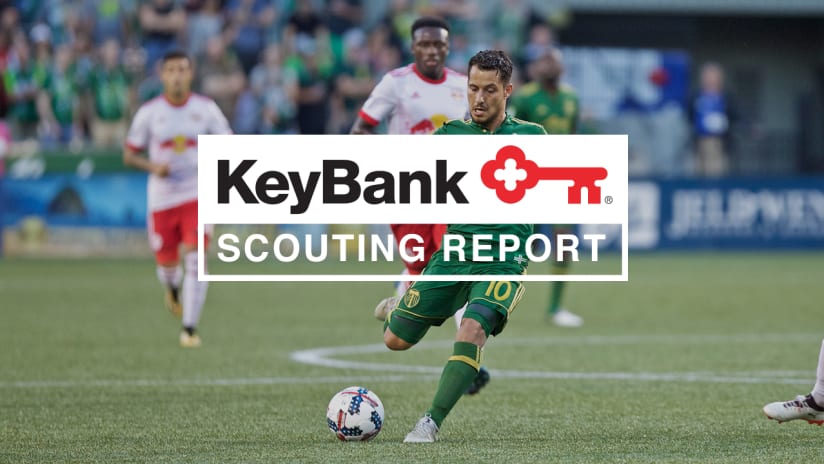New York Red Bulls fans were right to look at Tuesday’s 2-0, CONCACAF Champions League triumph over Club Tijuana, in Mexico, as a marquee victory for the club — the type of result MLS has long sought to make a regular affair against the region’s dominant league. Portland fans, however, should be forgiven for thinking, more selfishly, “I hope their first team was worn out against Xolos.”
That’s because, for all the talk of Giovanni Savarese’s homecoming, Jesse Marsch’s squad rotation has become the dominant story of this game. After facing Tijuana at Estadio Caliente on Tuesday night, Marsch’s first XI would have to endure a cross-country flight, recovery from playing on turf, and a short, three-day turnaround to feature on Saturday against the Timbers (4pm PT, ROOT SPORTS).
That could happen, but it probably won’t. Instead, Portland will likely face a drastically changed team from the one that triumphed in Baja California.
Still, fans confusing those changes for an easy day at Red Bull Arena should reconsider. As Savarese noted in his Tuesday press conference, the Timbers will likely face a motivated team ready to run until they drop.
Here are this week’s three things to look for, our Key Bank Scouting Report:
1. Take nothing for granted
Consider this potential Red Bulls’ starting XI, as projected by MLSSoccer.com:
Luis Robles — Connor Lade, Tommy Redding, Fidel Escobar, Aurelien Collin — Sean Davis, Florian Valot — Ben Mines, Kaku, Derrick Etienne Jr. — Carlos Rivas
For those unfamiliar with Major League Soccer’s depth charts, that’s not a bad XI. It certainly isn’t the USL-level team the Timbers tore through for a 4-1 victory last month in Tucson. There are some legitimately good talents in that team, even beyond regular starter Luis “I stopped 13 freaking shots in Mexico” Robles (he’s a University of Portland alum, you know).
Escobar is an international-caliber defender. Lade, Redding and Collin are all capable of putting in above-average shifts at their positions. Davis is one year removed from being penciled in as the team’s starter in midfield, while Kaku (Red Bulls’ latest high-profile attacking acquisition), Etienne and Rivas are all capable of punishing teams in the final third.
This XI is no pushover, by any means. If anything, this weekend’s back five could prove more difficult to break down than the defense the Timbers saw on Sunday in Carson, California.
“When you have a bunch of hungry young players, they’re never going to stop running,” Savarese explained at his weekly press conference. “That’s what we expect. They’re going to run, run, run, and of course, try to build with the good things that they do. We know that it’s going to be a tough match.”
That’s not to say three points is out of reach, but the Timbers will need to improve on last week’s performance to claim that result. Else, the depth Marsch and sporting director Denis Hamlett have accumulated will turn Portland’s opening-night loss into the first losing streak of the season.
2. Handling the press
Beyond New York’s lineup issues and Savarese’s return, the most prevalent story ahead of Saturday’ game is how the Timbers deal with the Red Bulls’ press.
Under Marsch, New York’s ability to harry, harass, aggravate and tempt opponents into poor decisions has become the defining characteristic of the Red Bulls’ teams. Though many sides preach a commitment to high-intensity, play-in-their-end defending, New York lives that life in a way that makes other teams look like fence-sitting hypocrites. And as the Red Bulls’ struggles at the beginning of the 2016 and 2017 seasons attest, Marsch is willing to live and die by his methods, even if an offseason’s turnover means he has to die a little bit to embolden his approach.
Savarese is no stranger to Marsch’s methods, and after his years in New York, he has a good idea of what to expect when the Timbers walk out at Red Bull Arena.
“We played [the Red Bulls] with the Cosmos, and I think we have a pretty good idea of what to do against this team,” Savarese said. “But the important thing is to be able to apply it the right way. That’s what we’re going to work on.”
On paper, this seems like a tricky matchup for Portland, who carry questions about their central defense and midfield’s transition play into their second match of the season. But to the extent those problems exist (90 minutes of play is a small sample), they can’t be addressed without confronting them. And there may be no better way to confront them than flying into the belly of the beast and facing the problem head on.
3, Remember the lessons of LA
As much as I harped on the lessons of preseason in response to Sunday’s loss, there were some silver linings from the Timbers time in Tucson; mainly, the bad stretches were few and limited, and they were usually accompanied by convincing responses.
Sunday’s response wasn’t convincing enough, but if the Timbers’ issues amount to spans of lost focus of momentum, Savarese’s solution could be as simple as shrinking that window.
The Timbers played 30 bad minutes in Los Angeles. That was down from the 45-minute-plus dips they had against Dallas and Sporting KC in preseason, and if progress continues, those spans should continue to approach zero.
That is, admittedly, a silver-lining view, but it’s a sliver-lining view that comes with an obvious axiom: Play better for longer, and you’re more likely to get a better result. If 30 minutes sunk the Timbers in LA, Saturday should be about applying a lesson, and trying to reduce that bad spell to zero.
“We just have to be a little bit more complete in what we want to do,” Savarese prescribed. “We have to improve and grow to this next match that we have in New York.”












